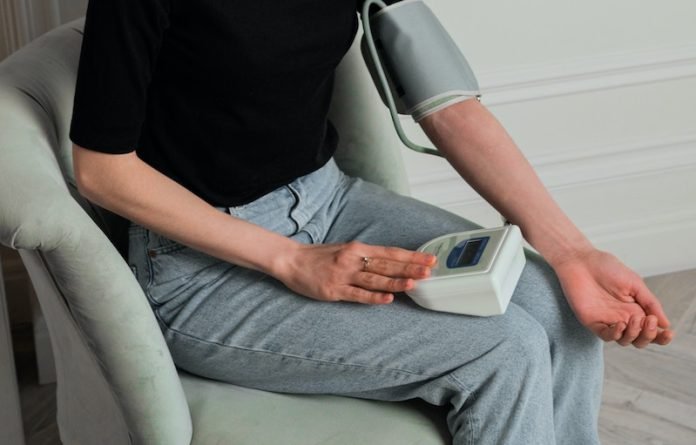
High blood pressure, also known as hypertension, is a serious condition that affects millions of people around the world.
It can increase the risk of heart disease, stroke, kidney disease, and vision problems.
Managing high blood pressure often requires lifestyle changes, such as exercising regularly, eating a healthy diet, and taking medication as prescribed.
However, a recent study from Harvard found that some people with high blood pressure may be unintentionally taking medication for another condition that can cause their blood pressure to rise even higher.
The study looked at data from the National Health and Nutrition Examination Survey and found that 18.5% of adults with high blood pressure reported taking medication that increased their blood pressure.
These medications included antidepressants, prescription-strength non-steroidal anti-inflammatory drugs (NSAIDs), steroids, hormonal medications, decongestants, and weight-loss pills.
The researchers found that people who were taking medication for other conditions that raise blood pressure were more likely to have uncontrolled high blood pressure if they were not also taking medication to lower their blood pressure.
Additionally, people who were taking medication to lower their blood pressure needed higher doses to control their blood pressure if they were also taking medication for another condition that raised blood pressure.
To control high blood pressure, it is important for people to ask their doctors if any of their medications will affect their blood pressure.
This is especially important for people who see multiple doctors, as not all doctors may be aware of all the medications their patients are taking.
By being aware of the potential effects of different medications, people can work with their doctors to create a treatment plan that effectively manages their high blood pressure and reduces the risk of related health problems.
In addition to medication, lifestyle changes can also play an important role in managing high blood pressure.
Eating a healthy diet that is low in sodium and high in fruits, vegetables, and whole grains can help lower blood pressure.
Regular exercise can also be helpful, as can reducing stress through practices like meditation and yoga.
By taking a comprehensive approach to managing high blood pressure, people can reduce their risk of related health problems and improve their overall health and well-being.
What drugs may increase blood pressure?
Several types of drugs can increase blood pressure, including:
Non-steroidal anti-inflammatory drugs (NSAIDs), such as ibuprofen and naproxen
Certain antidepressants, such as venlafaxine and tricyclic antidepressants
Steroids, such as prednisone
Hormonal medications, such as birth control pills or hormone replacement therapy
Decongestants, such as pseudoephedrine and phenylephrine
Weight loss pills, such as phentermine and sibutramine
It’s important to note that not all medications within these classes may increase blood pressure and that the effects may vary depending on individual factors.
It’s always a good idea to talk to your doctor or pharmacist if you have concerns about the medications you’re taking and their effects on your blood pressure.
If you care about high blood pressure, please read studies about the best time to take high blood pressure drugs, and scientists find new way to treat high blood pressure.
For more information about health, please see recent studies that Beetroot juice could help lower high blood pressure, and results showing this common plant nutrient could help reduce high blood pressure.
The research was published in JAMA Internal Medicine and conducted by Dr. Timothy Anderson et al.
Copyright © 2023 Knowridge Science Report. All rights reserved.



